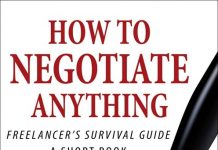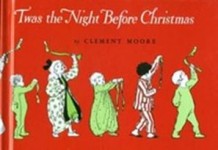 It is a debate so common that I don’t even need to pull up citations for this one. Do you own your ebooks? Or is what you are paying for merely a license to use the content in ways which the content seller pre-approves for you?
It is a debate so common that I don’t even need to pull up citations for this one. Do you own your ebooks? Or is what you are paying for merely a license to use the content in ways which the content seller pre-approves for you?
On the ‘it’s only a license’ side are the terms and conditions the ebook stores list in their fine print: only on X number of devices, only for the person listed on the account, only when first decrypted through an Adobe server or an Amazon download script and so on.
And on the ‘you bought it’ side? Well, I have always argued that price should be an indicator. If it’s a rental, it should have a rental-level price, but if I clicked a button which said ‘buy now’ (not ‘rent now’) and paid anything approaching a full, retail sticker price, it should be mine. And I feel no guilt whatsoever about decrypting these purchases and loading them into Calibre to do with as I please.
An intriguing little snippet was posted at Boing Boing yesterday which adds more weight to the ‘buy’ argument: author Cory Doctorow posted a screenshot of the screen which followed his book purchase, and it began with ‘now that you own the Kindle book…’
Terminology matters. I think that, now that the market is maturing, it is high time the publishing industry got their acts together on this. If you charge people full retail price and then bury the ‘licensing’ terms in 15 screens worth of fine print that they only see once, when they sign up, that’s being deceptive. And what you’ll get is customers like me being disgruntled at giving up the rights we had with paper for a product which costs the same but is often riddled with errors and is severely limited in how it can be enjoyed.
So, I urge you to to start playing fair with people. If it truly is a sale and we are meant to own these books, do away with the DRM and the rights restrictions, and proofread the darned things to make sure they are of ownership quality. If you are set on persisting with the mindset that it’s only a rental, then lower the price accordingly to rental levels the way the home video market did, and change the text on your vendor sites accordingly so you aren’t snookering people into thinking they are getting something they’re not. In short: if you are going to charge people money, play fair for it.

































Except for eBooks that are published directly by Amazon, what Amazon may or may not indicate on their web site is irrelevant. It doesn’t matter if the Amazon site says “buy now” or “one-click buying”.
For books that are published by other publishers, Amazon is only a middleman. They can not change the terms and conditions set by the publishers (e.g. Hachette, Random-Penguin, etc.).
Personally, I wish that the big 5 book publishers would follow the example of the music industry and abandon DRM. So far, however, there is no sign of any such move on the horizon.
Don’t bother with what Amazon says or does. Send all complaints directly to the publisher of your favorite books.
Copyright owners have no control over the terms Amazon uses to describe the licensing of an ebook. If they want to use “sell” or “buy,” authors/copyright owners cannot stop them even though the correct term is “license.”
Authors/copyright owners license their works to publishers who license them to distributors who license them to readers. Then readers are offended because they don’t own them when no one else but the author does in this process?
According to “The First Sale Doctrine” which was created by the courts and the US Copyright Office, when you buy a paper book, you own the paper, the ink, and the glue, but you don’t own the content. That means you can sell the physical book, but you can’t make a copy of the content to sell, nor can you use it for an audiobook, movie, or any other new source of income.
In other words, the only thing you “lose” by licensing a digital book is the physical container. In most cases, the lack of that container makes the book contents cheaper.
For more information on “The First Sale Doctrine,” I suggest you look at my article on the subject and check out the resources at the bottom for more technical info on the subject.
http://mbyerly.blogspot.com/2009/04/first-sale-doctrine-and-ebooks.html2
But that is the problem, Marilynn. They don’t make it cheaper. I have wishlisted dozens of ebooks which were selling for more than the paper copy was. In many of these cases, I wound up getting them from the library—for free, with no benefit for the author—before they got reduced. In other cases, they have been languishing on my wish list for a year or two with no drop in price. One of those books, I finally caved in and bought at almost $20 only to return it to Amazon because it was riddled with typos.
If it’s a rental, it should say ‘rental’ on it and it should cost less than a non-rental. I challenge you to find a customer out there who would disagree with that assertion. As these customers are the ones who are doing the buying, I think their point should be considered.
I’ve been thinking about your comment about ebooks not getting any cheaper, and I’ve realized that those from the big publishers won’t.
eBooks are fast becoming a major segment of their market, and, if they drop the prices to much below paper, they run the risk of bleeding money if they do drop them, and paper sales fall even further.
Either you have to readjust your thinking about price, or you’ll have to read only cheaper books and hit the library e-shelves.
When consumers have the perception that vendors are being deceptive and unfair as described here, they are more willing to respond in kind. They then become more open to circumventing the terms of sale (converting the “rental” eBook into an “owned” eBook via removing DRM) or even seeking out and finding ways to acquire the eBook without paying for it at all. Publishers and their retail partners are thus shooting themselves in the foot.
Trying to solve the problem of cannibalizing paper book sales by inflating eBook prices is more of the same counter productive thinking.